- The State of Vermont Aerospace and Aviation
Vermont is home to a $2 billion aerospace manufacturing and civil aviation industry. According to the U.S. Economic Impact of Civil Aviation by State Report done in November 2020 by the Federal Aviation Administration, the economic impact of civil aviation alone for the state of Vermont includes:
- $1.195 billion in economic output
- $304 million in earnings
- $644 million in value added
- 8,917 jobs
Civil aviation represents 2% of Vermont’s gross domestic product (GDP).
Vermont is also home to industry leaders including Beta Technologies, Collins Aerospace, A Raytheon Technologies Company, GE Aviation, General Dynamics, G.S. Precision, and an established, world-class supplier base of small and medium-sized enterprises (SMEs).
Paradigm shifts brought about by the pandemic impacted aerospace manufacturing for commercial aviation, as well as global supply chains, moving suppliers to pivot to defense contracting and OEMs and Primes to adapt and innovate. Integrated supply chains are becoming more focused on digitization, cybersecurity compliance, diversification, artificial intelligence, sustainability, and the growing importance of regional supply chains.
At present, we have a severe workforce labor shortage and skills gap in manufacturing, which is being worsened by the “Great Reshuffle, Resignation, and Retirement.” When commercial aviation rebounds in 2023 and 2024, we will need a skilled and trained workforce in aerospace and aviation, including engineers, maintenance, repair, and overhaul (MRO) technicians, assembly and fabrication, cabin crew, and, importantly, pilots.
- Manufacturing Our Future Workforce
In support of Governor Phil Scott’s Comprehensive Blueprint for Economic Growth and Make Vermont a Supply Chain Hub and Strengthen Our Relationship with Québec (page 17), we have an opportunity to really put Vermont on the map with the Aerospace Trade Corridor and transform the State into an Aerospace & Aviation Supply Chain Hub by:
- Training the next generation workforce, including maintenance, repair, and overhaul (MRO) technicians, manufacturing and assembly, and pilots for both traditional fixed-wing and rotator and electric vertical take-off and landing (eVTOL) and vertical take-off and landing (VTOL) aircraft.
- Growing, marketing, and promoting Vermont’s maintenance, repair, and overhaul (MRO) cluster, an important part of Vermont’s $2 billion aerospace manufacturing and civil aviation industry and leverage the 6% aviation sales tax exemption as an economic development recruitment tool for MRO on parts, equipment, and machinery for commercial charter and private aircraft.
- According to Aviation Week, “over the next ten years, 53,987 aircraft will be delivered, 32,196 aircraft will retire, and the total MRO spend is anticipated to be over $2 trillion.”
- With the above in place, recruit new aerospace manufacturers to the State just like New York did with Norsk Titanium to the former Plattsburg U.S. Air Force base.
To help accomplish this, and, along with other important efforts, the Vermont Chamber of Commerce has partnered with the The Burlington Technical Center to submit a $10 million federal earmark for an Aviation Tech Center filed with U.S. Senator Patrick Senator Leahy.
The Burlington Technical center is an FAA Part 147 approved Aircraft Maintenance Technician School which educates and trains the next generation of aviation technicians in airframe and powerplant, avionics, maintenance, repair, and overhaul.
If secured, and, with this project, Vermont will be able to retain and propel Vermont’s combined $2 billion aerospace and aviation industry forward with graduates ready to apply their relevant, current skills and capabilities with an array of employers, including aircraft manufacturers, such as Beta Technologies, Tier 1,2, and 3 aerospace suppliers, such as G.S. Precision (Tier-1), airlines (major, national, regional, and scheduled), cargo companies, charter operators, such as Boutique Air, flight schools, government agencies (FAA), MRO manufacturers, FAA Part 145 Repair Stations, Vermont Air National Guard, and the Vermont Army National Guard.
Educating and training the next generation of aviation technicians in airframe and powerplant, avionics, and MRO is an investment in our future workforce and will help address Vermont’s workforce labor shortage and skills gap in civil and commercial aviation and aerospace manufacturing. Graduates will be able to enter careers in commercial, military, government, and private aviation. Graduates will also be able to work in Vermont airport facilities and replace a generation that is on the verge of retirement across the state.
To learn more, please contact Chris Carrigan at ccarrigan@vtchamber.com.
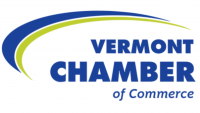



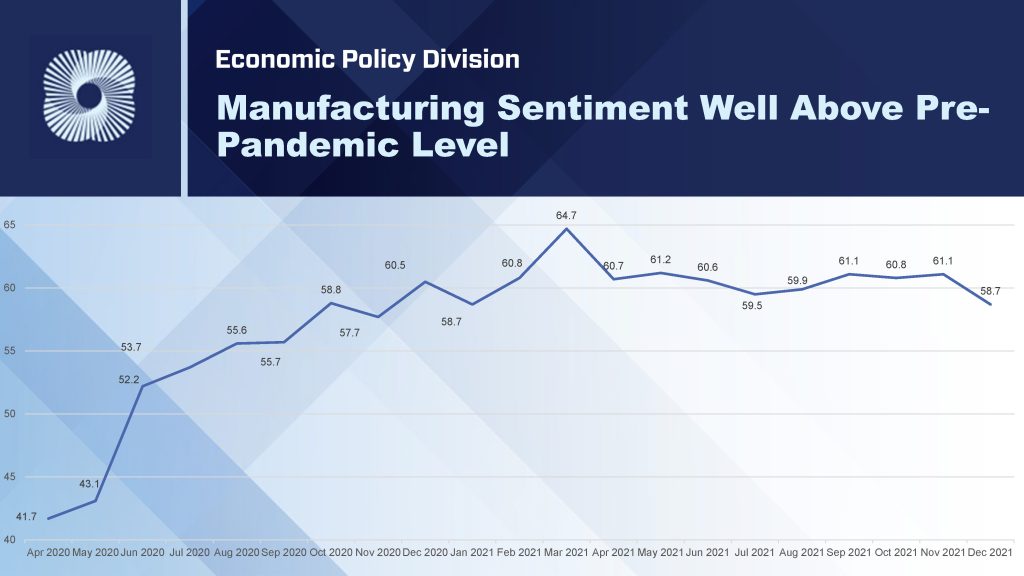

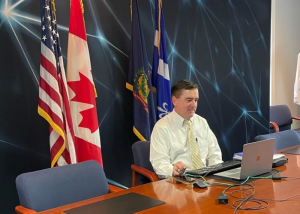
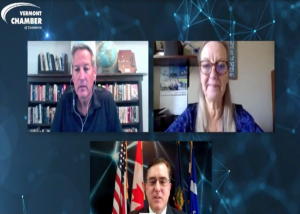 In support of our work to inter-cluster our aerospace and defense industries and provide our participants with access to new markets, contacts, shared best practices, and supply chain innovation and transformation, the Vermont Chamber, in partnership with the Ontario Aerospace Council, signed a new Memorandum of Understanding (MOU) at the recent 2021 Manufacturing Summit and officially expanded the
In support of our work to inter-cluster our aerospace and defense industries and provide our participants with access to new markets, contacts, shared best practices, and supply chain innovation and transformation, the Vermont Chamber, in partnership with the Ontario Aerospace Council, signed a new Memorandum of Understanding (MOU) at the recent 2021 Manufacturing Summit and officially expanded the 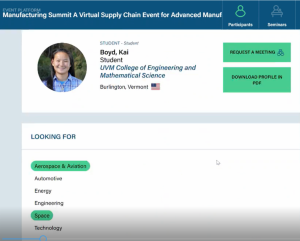 At our 2021 Manufacturing Summit, we provided important workforce development through partnerships with the University of Vermont College of Engineering and Mathematical Sciences (CEMS) and Vermont Technical College. The Vermont Chamber facilitated 20 interviews for students and soon-to-be graduates in STEM and advanced manufacturing with employer participants for jobs and internship opportunities.
At our 2021 Manufacturing Summit, we provided important workforce development through partnerships with the University of Vermont College of Engineering and Mathematical Sciences (CEMS) and Vermont Technical College. The Vermont Chamber facilitated 20 interviews for students and soon-to-be graduates in STEM and advanced manufacturing with employer participants for jobs and internship opportunities.


